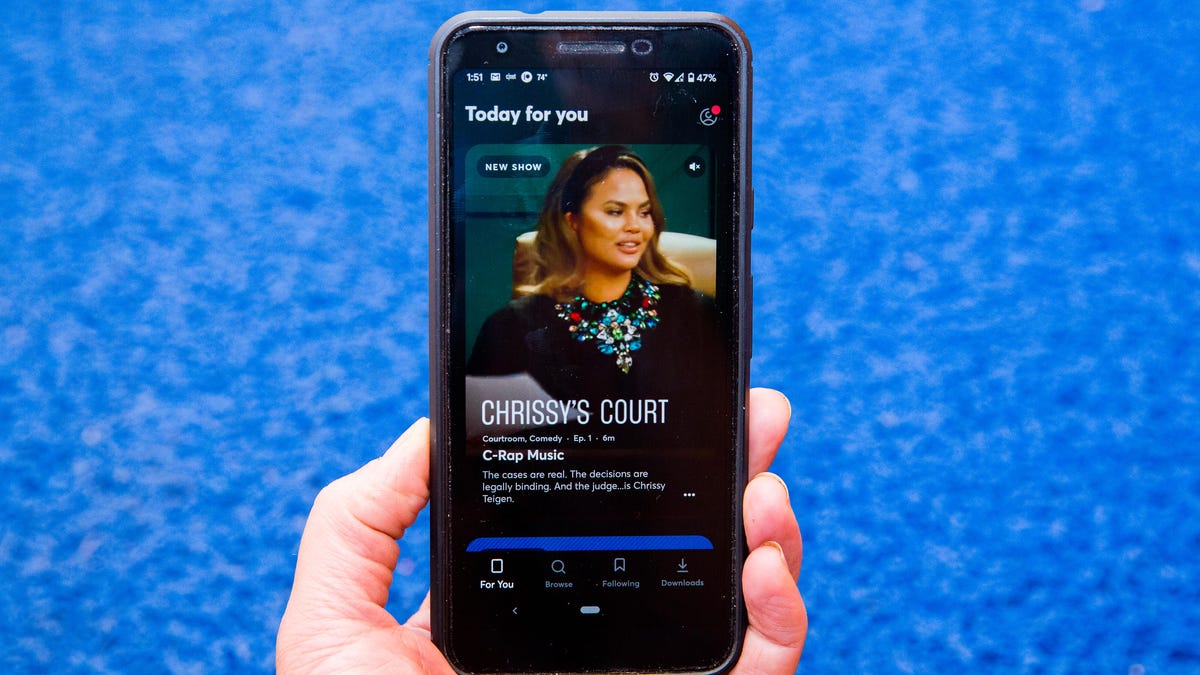 Why You Can Trust CNET
Why You Can Trust CNET Quibi reportedly weighs selling itself less than 6 months after launching
Quibi launched in April as an unconventional mobile-only, short-form video streaming service. It's struggled to keep up with its ambitions.

Quibi, a star-studded mobile streaming service, is exploring strategic options including a possible sale less than six months after its launch in April, according to a report by The Wall Street Journal. It is also considering raising more money or going public through a merger with a specially formed company that could help it fund deals, the report added, citing unnamed people familiar with the matter.
It declined to comment directly on the report, but Quibi said in a statement that it "has successfully launched a new business and pioneered a new form of storytelling and state-of-the-art platform." It added that CEO Meg Whitman and founder Jeffrey Katzenberg "are committed to continuing to build the business in the way that gives the greatest experience for customers, greatest value for shareholders and greatest opportunity for employees."
More streaming advice
- 10 Ways to Save Money on Streaming
- How to Cut the Cable TV Cord in 2023
- See More at Streaming TV Insider
Quibi launched in the US and Canada in April as a service designed for viewing on the go just as swaths of North America were locking down because of the coronavirus pandemic, one of several problems to plague the service and hinder it from reaching its ambitious growth goals. The company's mobile-only strategy also underestimated demand to watch its big-budget programming on TVs, especially with people stuck at home more than ever. And Quibi made its programming harder to share or meme on social networks, stunting virality and word of mouth.
The company had hoped its unconventional strategy -- very expensive, star-packed programming released in 10-minute-or-less episodes that you can watch only on phones or mobile devices -- would find a sweet spot in a streaming landscape crowded with the likes of Netflix, Disney Plus, Apple TV Plus, Peacock and HBO Max, as well as established players like Netflix. And of course, Quibi faces a Goliath in YouTube, the short-video specialist that's already drawing in more than 2 billion viewers every month.

